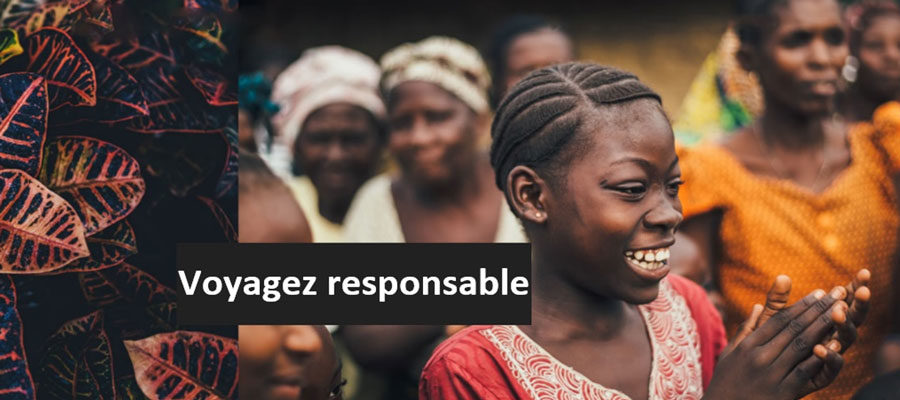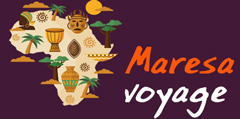
TRAVELER ETHICS CHARTER
Ethical tourism is above all based on the notion of exchange and respect: respect for your hosts, respect for their culture, and respect for nature. Travelers wishing to take part in this process must therefore comply with certain rules of good conduct that we have wished to group together below. Indeed, without awareness of the challenges of « responsible travel », communities will have to endure the realities of classic tourism by this mass population (few benefits for the local population, significant ecological impacts, distant relationship between tourists and locals or begging judgments). This is why the emphasis is on the code of conduct to be adopted when traveling, which is a set of basic gestures, sometimes overlooked on vacation.
BEFORE THE JOURNEY
1 – A trip is all the better appreciated if one learns in advance about the culture, history, people and their way of life, heritage, religion, beliefs of the area visited.
2 – By learning for example a few words in Beti (peoples of the Central Region in Cameroon), this will facilitate my contact with the local population.
3 – Before leaving, I document the behaviors to adopt or avoid in order not to shock the local populations: dressing in a way that is too naked or too ostentatious, taking pictures of children “without authorization” for example can indeed be done. be disturbing for the population.
4 – I think about making responsible purchases: the necessary (shower gels and biodegradable shampoos), to pollute as little as possible once there, especially during stays in the countryside and I try to limit as much as possible the disposable packaging to leave on square.
5 – I only take the essentials, and save room in the suitcase to bring back locally made souvenirs (art objects, souvenir products).
6 – I learn about how the bargaining is done (negotiating the prices of certain products).
7 – I inquire about tips to leave when I frequent (restaurants, artisans, or tourist guides).
DURING THE TRIP
1 – I respect the different cultures and traditions of the people I have come to see, I adapt and enrich myself with this difference.
2 – When traveling, I am no longer at home, but just a simple guest. The expression that “the customer is king” is not valid vis-à-vis the populations who welcome me, a trip is far from being a product like any other. It is of course necessary to respect the places of worship, and not to enter if access is prohibited to tourists.
3 – It is important to know that on site, accommodation and services offered by locals are at privileged prices. So, I can compensate by buying crafts or regional products; this is one of the best ways to directly benefit people from tourism money.
4 – When I talk to a salesperson, I do it with humor and patience, and I don’t get carried away. A smile is always better than an aggressive tone.
5 – Before photographing someone, take the time to ask for permission and take the opportunity to engage in a dialogue. For children, ask for parental consent.
6 – If we want to distribute drugs to populations, it is more prudent to approach the dispensary or hospital in place, in order to ensure that they are used properly, and also to avoid fueling the black market.
7 – Just because some countries do not have a waste collection system does not mean that you have to throw away your rubbish anytime and anywhere! On the contrary, we have an awareness role to play with local populations, and it is up to us to set an example.
8 – So I take trash bags for all my waste and throw them in a trash can. When there are none nearby, I wait until I’m back in town.
9 – I respect the silence of nature. I speak in a low voice, so as not to frighten the animals and not to disturb other visitors.
10 – I do not entice animals with food or feed them, it could alter their diet and may even be fatal.
11 – When there are paths, I respect the markings, thus avoiding trampling the flora.
12 – I do not pick the plants and flowers in my path; some species are endangered.
13 – I respect the regulations in force in reservations or natural parks.
14 – Drinking water is a scarce commodity and it should be avoided to pollute it.
15 – I am thinking of limiting the use of air conditioning. It consumes a lot and contributes to global warming!
AFTER THE TRIP
1 – Promote dialogue with the people encountered during the trip to enable tourism that is a factor of peace. Send them photos, for example, if some have missed fascinating or deplorable scenes.
2 – Offset its CO2 emissions (linked to my trip), and in this case air travel, by contributing to climate solidarity projects in place.
3 – Share your stay experience: with friends, family, or on social networks to testify to the richness encountered and our duty to preserve it thanks to « tips for better travel »
The Maresa team wishes you an excellent stay!
